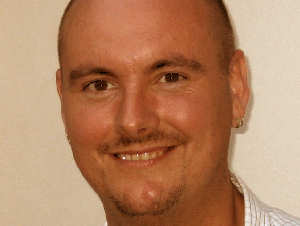Opinion column

Be positive when reaching out
As James Knight recalls his own journey to faith, he urges us to adopt a positive approach when sharing your beliefs with others.
I am sure that God is doing many profound things during this Covid pandemic. The world has been shaken up, and a shaken up world is bound to review what it takes for granted, which things matter most, where we have become complacent or lost touch with key values, and perhaps even deeper considerations about the bigger picture and our own mortality on earth.
Furthermore, in a shaken up world where most people are listening out for good guidance, there remains more than ever a call to tell people that there is more to life than our earthly challenges – that we have a God who loves us, cares about us, and wants to have a relationship with us.
A Christian friend asked me how I thought we could best evangelise during this pandemic. My feeling is that it’s probably not very different to how we should always be evangelising. One of the ingenious things about Christianity is that it draws the very most out of creation in terms of individual sovereignty and of group togetherness; it highly values the individual as a unique, valuable, loved agent, but who is also at the same time part of a collective in terms of those higher qualities that ought to be shared goals for humanity (love, kindness, goodness, wisdom).
That is to say, we have to tap into the listener's notion of a valuable individual self and a purposeful striving for collective betterment, whilst being mindful that they might be so steeped in identity politics and group thinking that it's not terribly obvious to them that Christ's personal message can be of infinite value to them. Many modern people, especially young people, believe they are forests more than they are trees.
A good way to consider healthy evangelism is to touch on Kurt Lewin’s famous idea in psychology about the brake and the accelerator (although Lewin is borrowing heavily from the even more famous The Wind and the Sun fable from Aesop). The brake and the accelerator are analogies for the restraining forces and the driving forces in human behaviour, especially around persuasion. For example, if you want to try to convince someone that your belief is the correct one, or that they are in the moral wrong, you can try a forceful approach (pushing harder on the accelerator) which is likely to get their back up, or you can try to make a positive change by helping people to be relieved of the restraining forces that may be inhibiting them (pushing the brake).
My experiences tell me that this is one of the biggest truisms in psychology. If you want to convince and persuade, confronting people over what you think is their ignorance and foolishness is likely to just push them further away. It is better to enable them to see the error of their ways by helping them knock down any barriers they have to seeing the truth.
Instead of approaching the situation by asking “How can I get them to change their view?” it’s much better to ask, “What are the barriers that have stopped them changing their view already?” And you’ll find that those barriers are numerous. Sometimes an idea or perspective has just never even been explained to the person – you’re trying to sell them something that’s new and they need time to assimilate a fresh kind of thinking into their minds. Often, they are preconditioned to a view because of their environment. They often have a perverse incentive for their belief that they haven’t ever dealt with. They may well have social or tribal pressures to conform to a view, especially in politics or religion.
In situations like the above, pushing on the accelerator is more likely to widen the gulf than bring you both closer together. Pressing on the brake gives you a much better chance of changing their perspective:
They’ve never had an idea explained to them before? Be the one who explains it wonderfully, and do so with kindness and gentleness.
They are preconditioned because of their environment? Help them see the world through a new pair of eyes.
They have a perverse incentive for their belief that they haven’t ever dealt with? Help them discover what’s driving that incentive, and lead them to a place where the incentive can become less overpowering.
They have social or tribal pressures to conform to a view? Help rescue them from any affiliated chains that enslave their reasoning.
When trying to persuade people of the truth of Christianity, I find the best and most simplest way is by trying to show people how much God loves them, how awesome He is, and how blessed they would be if they had a relationship with Christ.
This year I celebrated twenty years since I became a Christian. When I reflect back to the people who had the most influence in my coming to faith, two things stand out. The first is that these were the people who were most faithfully living the gospel as well as speaking it. But the second is that their influence on my change of perspective wasn’t primarily fashioned by combating my under-developed perspective on the Christian faith, it was by gently and respectfully helping me to knock down my own barriers to faith and understanding. To paraphrase an old Chinese proverb, they didn’t curse my darkness, they tried to help me light a candle.
It's now twenty years later, and I still know of no better way to help people understand the truth of the gospel.
The image is by Taken from Pixabay.com
 James Knight is a local government officer based in Norwich, and is a regular columnist for Christian community websites Network Norfolk and Network Ipswich. He also blogs regularly as ‘The Philosophical Muser’, and contributes articles to UK think tanks The Adam Smith Institute and The Institute of Economic Affairs, as well as the London Institute for Contemporary Christianity (LICC).
James Knight is a local government officer based in Norwich, and is a regular columnist for Christian community websites Network Norfolk and Network Ipswich. He also blogs regularly as ‘The Philosophical Muser’, and contributes articles to UK think tanks The Adam Smith Institute and The Institute of Economic Affairs, as well as the London Institute for Contemporary Christianity (LICC).
The views carried here are those of the author, not necessarily those of Network Norfolk, and are intended to stimulate constructive debate between website users.
We welcome your thoughts and comments, posted below, upon the ideas expressed here.
Click here to read our forum and comment posting guidelines
You can also contact the author direct at j.knight423@btinternet.com